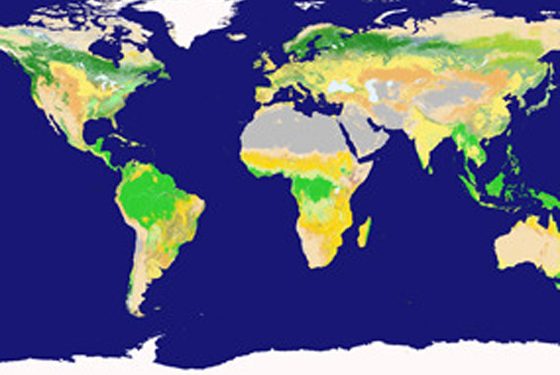The Ministry of Energy and Industry, in partnership with the Qatar National Food Security Program (QNFSP), signed a Letter of Interest (LoI) signifying Qatar's participation in the Global Atlas for Solar and Wind Energy project of the International Renewable Energy Agency (IRENA).
Issa Shahin Issa Al Ghanim, Director of Qatar Petroleum's Strategic Planning & Policy Directorate, signed the LOI in the presence of Adnan Amin, Director-General of IRENA, and Fahad bin Mohammed Al Attiya, Executive Chairman of the QNFSP. The signing ceremony was held at the Qatar National Convention Centre on the sidelines of the United Nations Climate Change Conference (COP18/CMP8), which is being held in Doha.
Under the terms of the LoI, Qatar will share solar data with IRENA in partnership with the QNFSP, which is the custodian of such data. The sharing of data will be coordinated by the New Energy Department of QP's Strategic Planning and Policy Directorate.
The Global Atlas for Solar and Wind Energy project aims to create a collaborative internet-based geographic information system (GIS) for wind and solar resources that can direct and enhance cooperation on global scenarios and strategies and support decision-making, especially in areas where existing information is insufficient.
The idea for the Global Atlas first took shape in a series of international workshops in 2010. The project is an initiative of the Clean Energy Ministerial's Solar and Wind Working Group, which is backed by ministers from 24 countries and aims to accelerate the global transition to clean energy. IRENA is playing a lead role in the creation of the atlas by working with other international institutions.
Once completed, the Global Atlas for Solar and Wind Energy will enable users to conduct a technical analysis of the renewable energy potential at any geographic scale, such as globally, per continent, by region, or country. In addition, it will also allow real-time calculation of specific indicators, including CO2 reductions, total investment, market volumes and employment volumes.
The potential end-users of the Global Atlas for Solar and Wind Energy will range from policymakers and government authorities, investors and developers, academics and the interested public.
Fahad said the existing maps and data collections of renewable energy resources are often narrowly focused, inconsistent and limited. Data consistency is crucial to compare and develop strategies and to take joint decisions. "As of now, there is no single reliable source that would give an idea to the investors where to put their money in the renewable sector. The mapping would give an opportunity for both the domestic and international investors how to exploit Qatar's renewable sources in a sustainable manner".
He hoped the mapping would accelerate progress towards harnessing Qatar's vast solar and other renewable sources, in order to meet its growing domestic demand and to promote sustainable energy use.
The Peninsula
5 December






















































